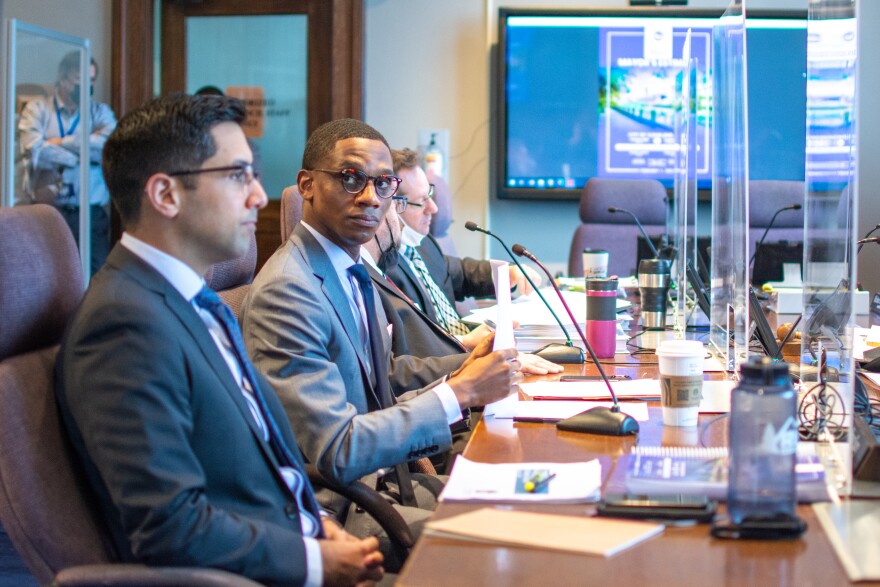Cleveland Mayor Justin Bibb’s administration is putting $110 million away in reserve funds in a bid to gird for a future recession and boost the city’s bond rating.
Of that sum, $20 million will go to the rainy day fund. The remaining $90 million will fill a new reserve fund to help the city afford payouts of unused vacation and sick time to departing employees. The new reserve could also cover regular pay in years with an additional pay period.
The city’s general fund has the cash to make those investments thanks to the infusion of federal money from the American Rescue Plan, Finance Director Ahmed Abonamah told Cleveland City Council, which passed the proposals at its meeting Wednesday afternoon.
The Bibb administration heard council’s call for more fiscal restraint during the budget process earlier this year, Abonamah said.
“These two pieces, really, are part of our response to that call from council,” he said, “to take these one-time resources that we have, put them away for future needs, so that when we do have future financial pain, we’re able to deal with it.”
The move will fill the rainy day fund to its brim as allowed under state law, bringing it up to about $65 million, the finance director said. That’s enough money to fund the city’s operations for 36 days, he said.
Having the additional money in reserves could help Cleveland convince ratings agencies to raise the city’s bond rating – making it less costly to borrow money for big projects.
Moody’s Investor Services rated Cleveland’s bonds at A1, and Standard & Poor's rated the city at AA+, Abonamah said, meaning the city’s bonds are a safe investment but with room for improvement.
Council members asked whether the city would skimp on services by directing so much money into reserves. Abonamah said the money isn’t currently encumbered for any other purpose in the general fund, and that the administration was trying to balance its current needs with its future ones.
Cleveland received the second half of its $512 million ARPA allocation last week, Bibb announced in a press release Tuesday that laid out his priorities for the funds.
But it was the first allocation of ARPA dollars last year – along with the original wave of federal aid in the CARES Act – that enabled the city to bolster its reserves, the finance director explained.
The city dedicated $108.9 million in federal funding for “revenue recovery” by covering payroll in the Department of Public Safety, Abonamah told council. That freed up general fund revenues to be transferred into reserves, he said.
The influx of federal money puts the city in the unusual position of being flush with one-time cash while also facing down a structural budget imbalance in which expenditures exceed revenue.
Cleveland is saving for the future at the same time that city leaders are renegotiating contracts with employee unions, including the police. Though the general fund may be flush with cash, Abonamah said the city isn’t bringing ARPA dollars to the bargaining table.
“We, on the administration side, have made it very clear that the one-time money that the city has received is not going to be used for any kind of wage increases or anything like that,” he said. “Because what happens when the music stops? Only pain.”
City unions are “waiting in line to get a pay raise” in contract talks, said Ward 8 Councilman Michael Polensek, who also urged the administration to hold the line on overtime costs.
“I believe we are in a recession, and I don't believe things are going to get better,” Polensek said.



